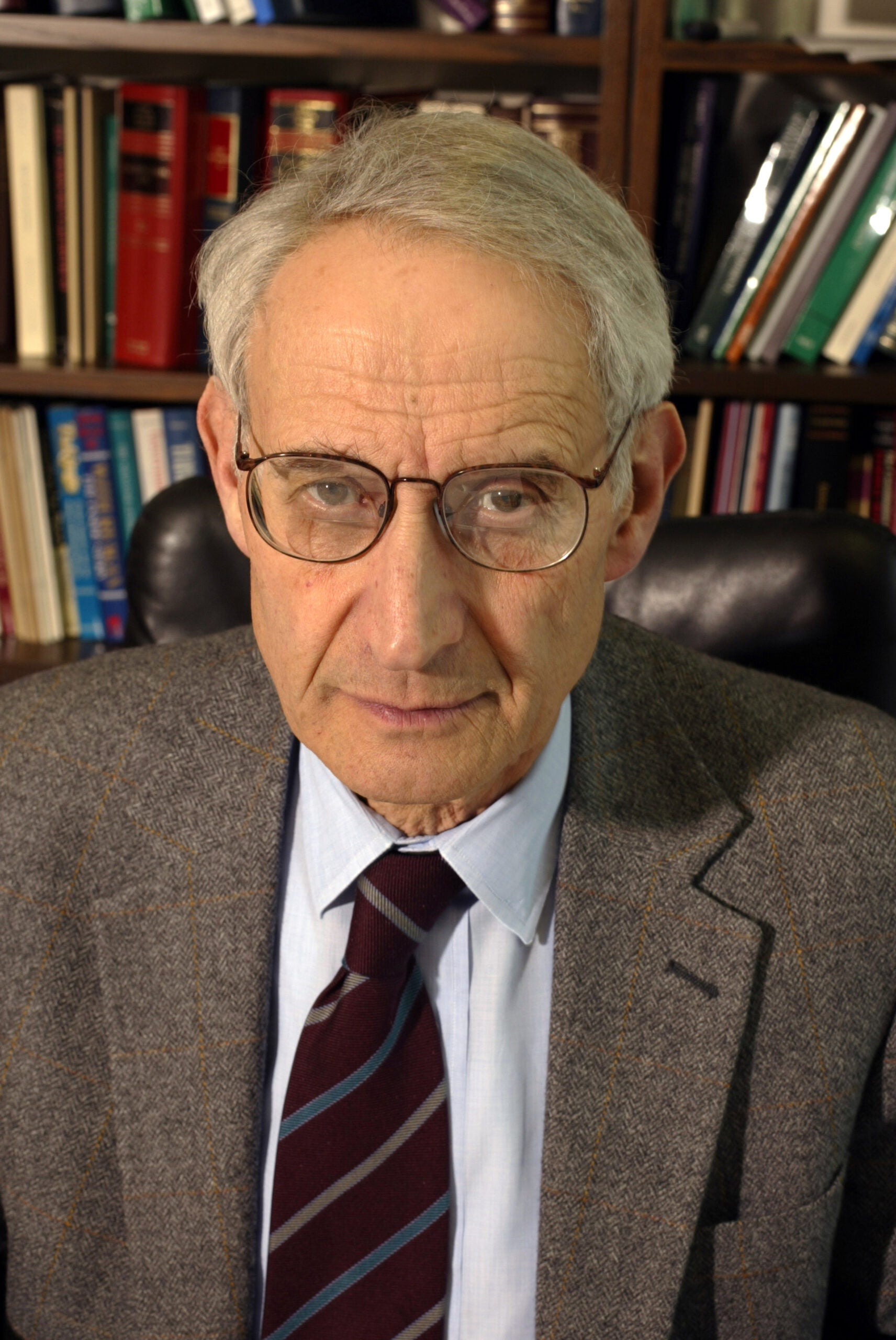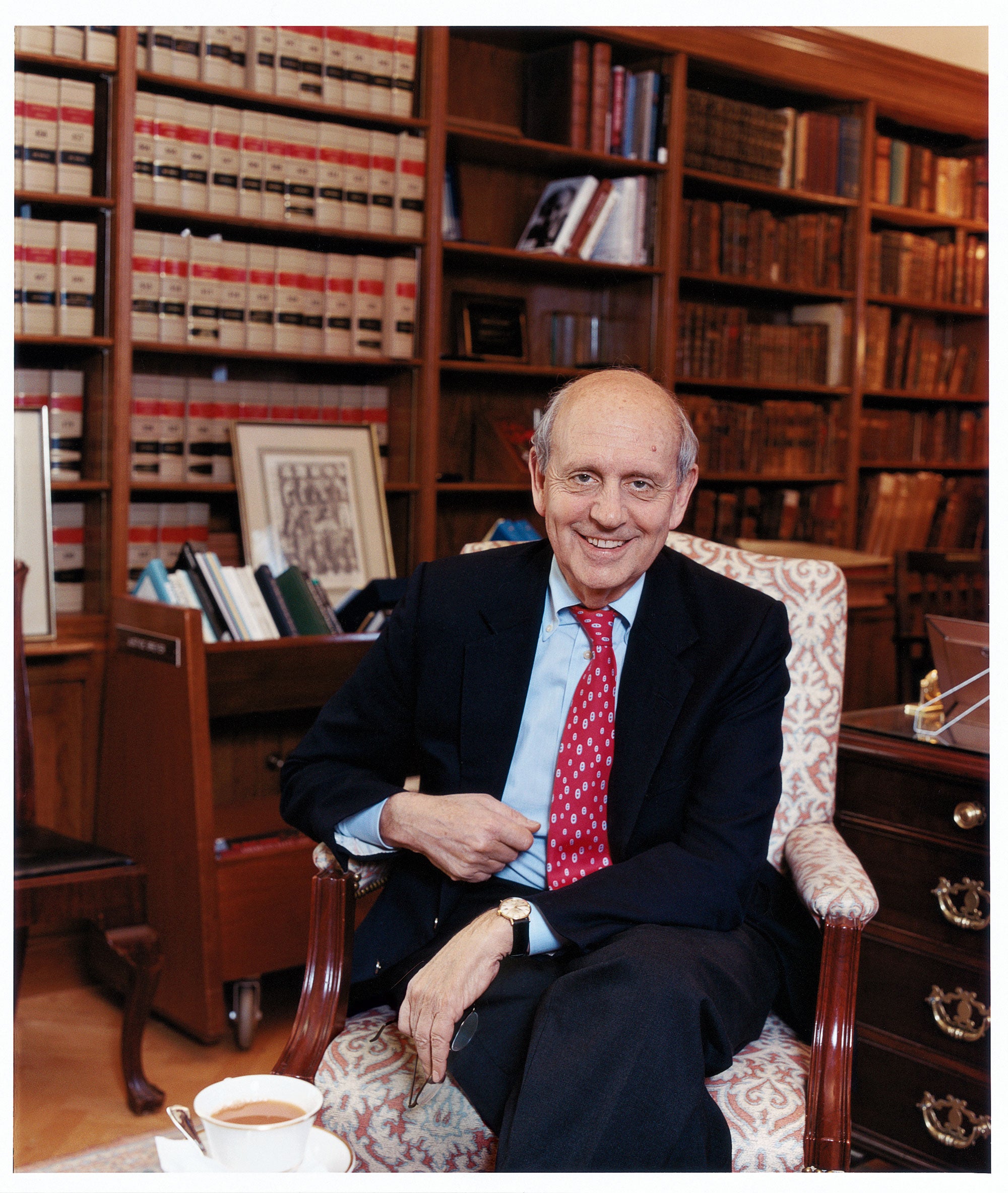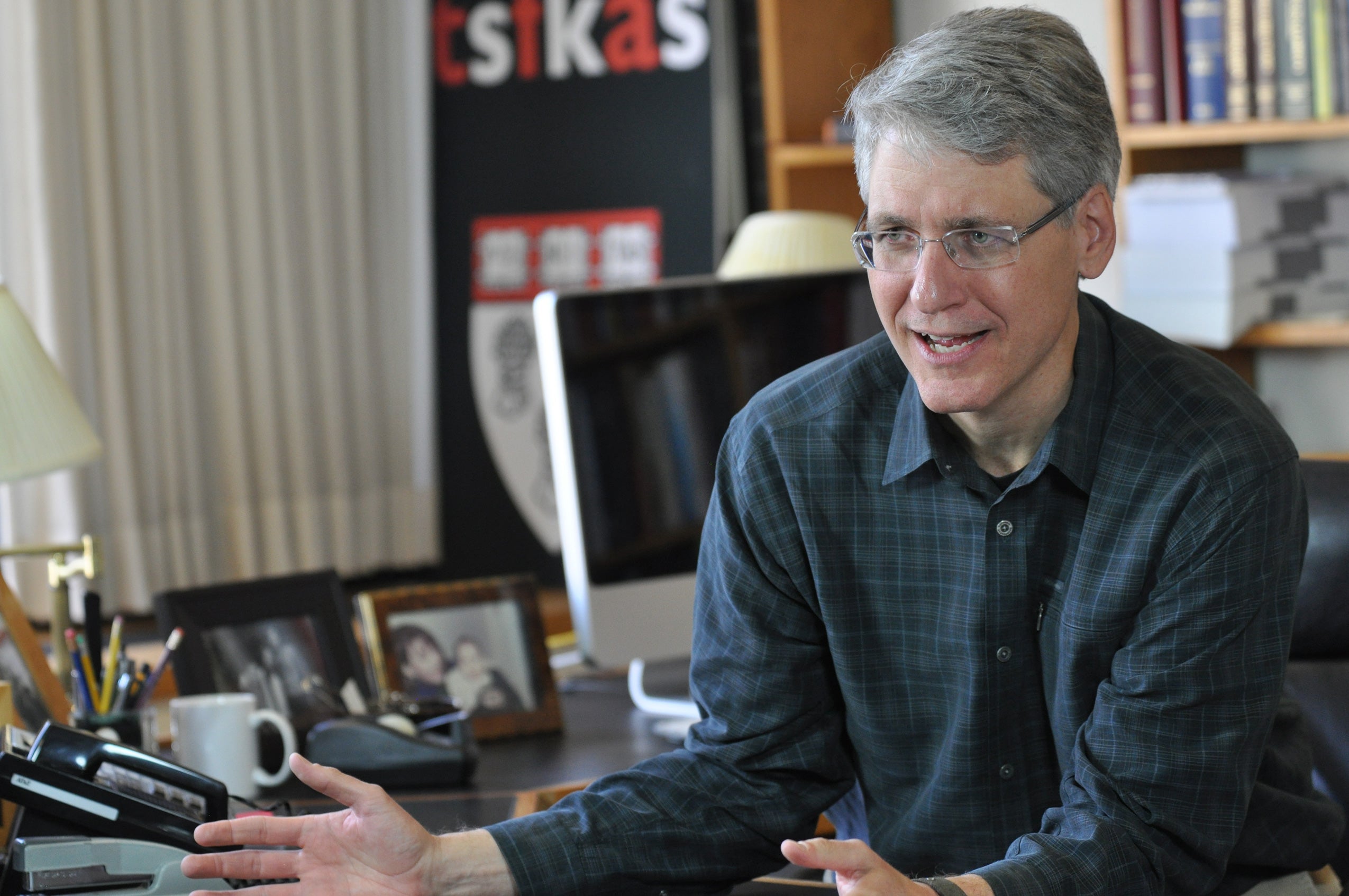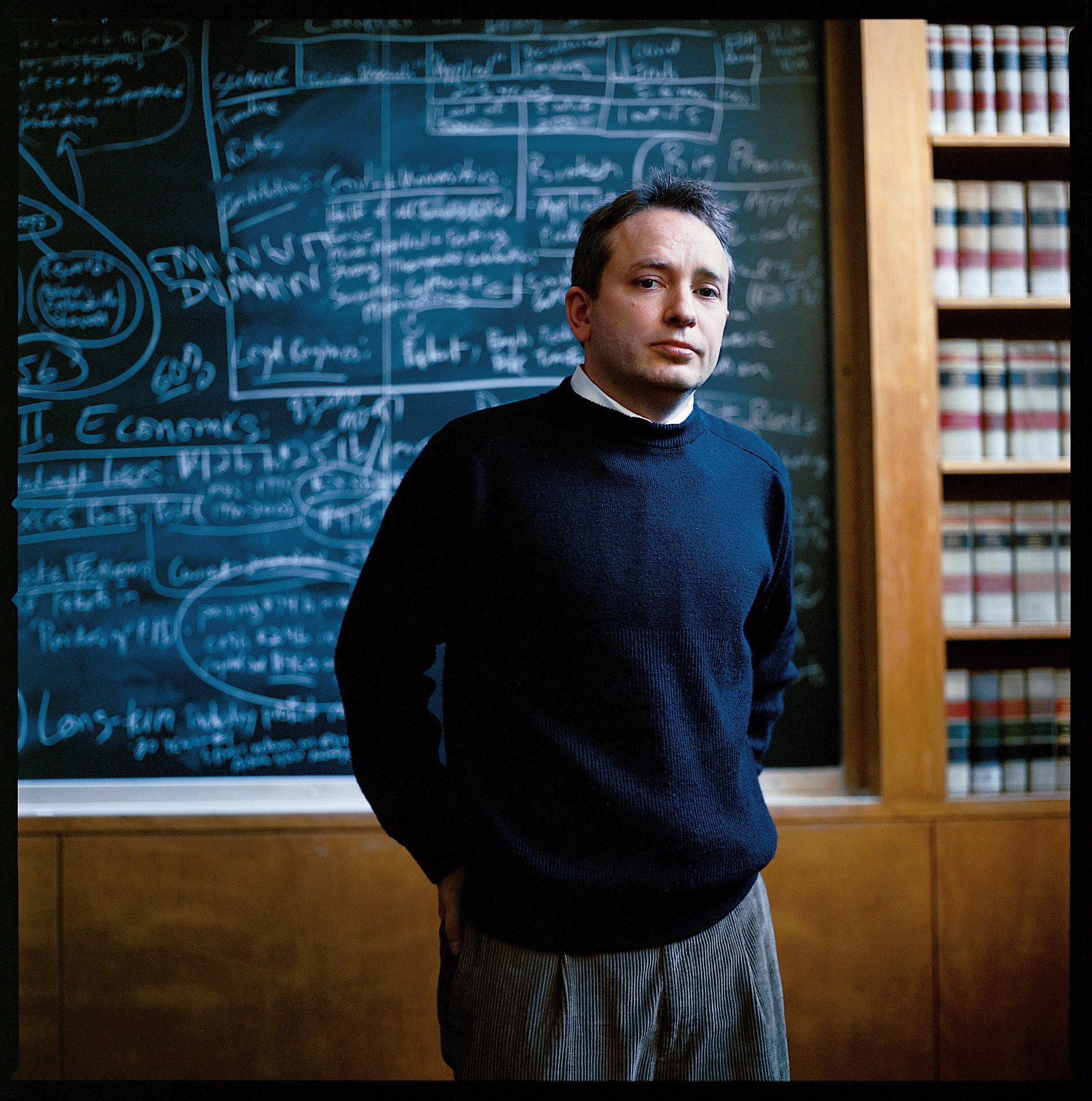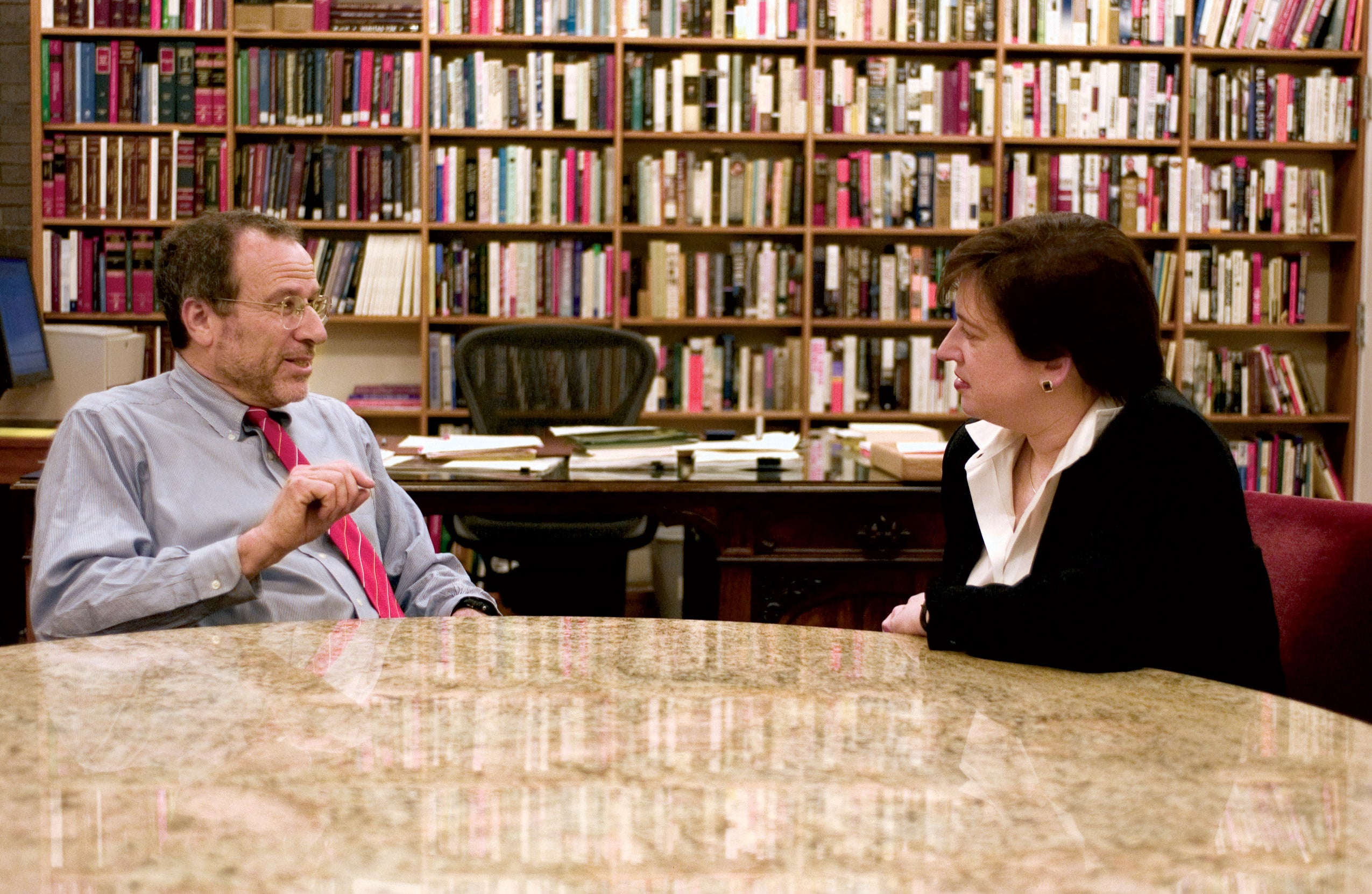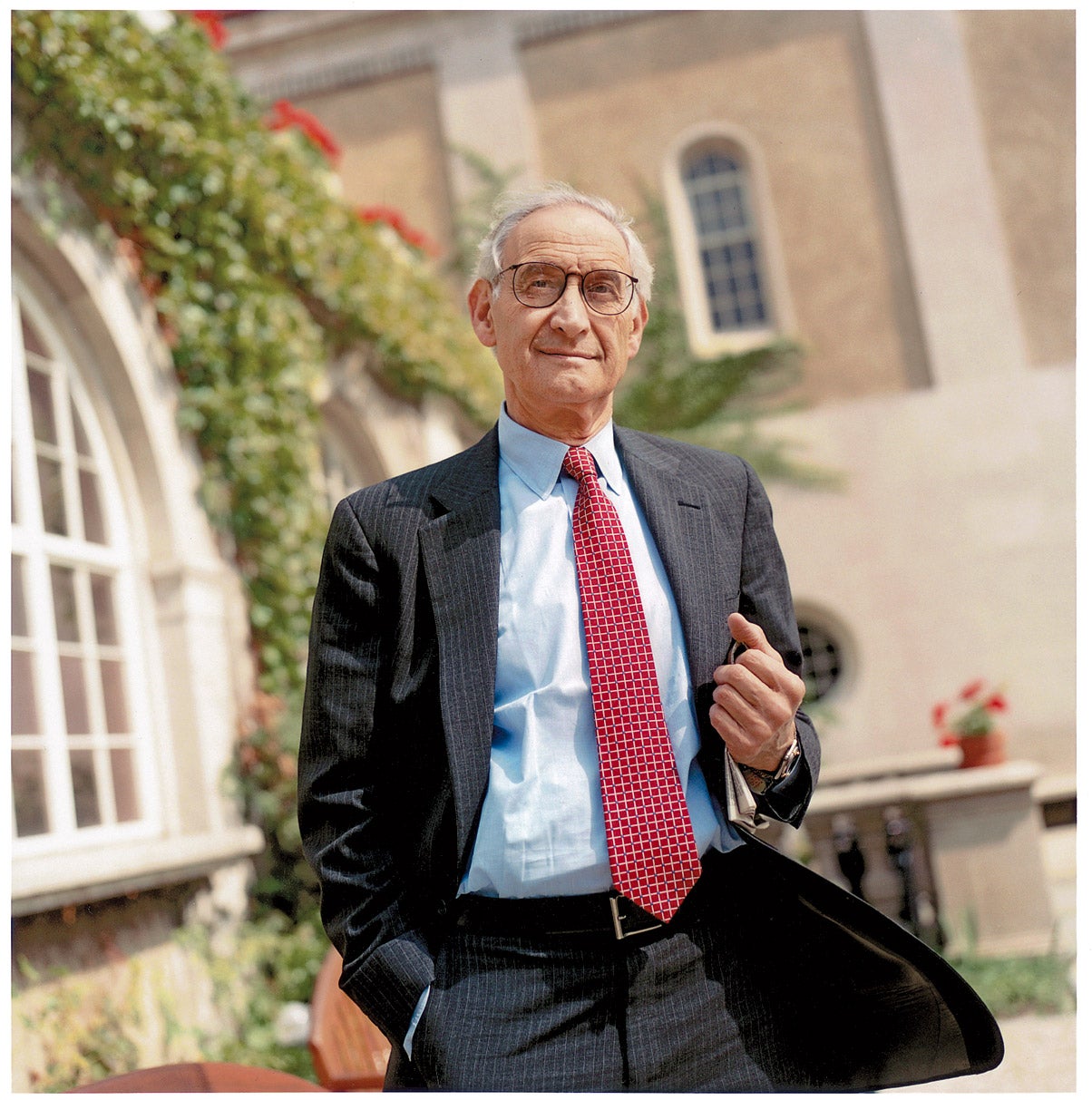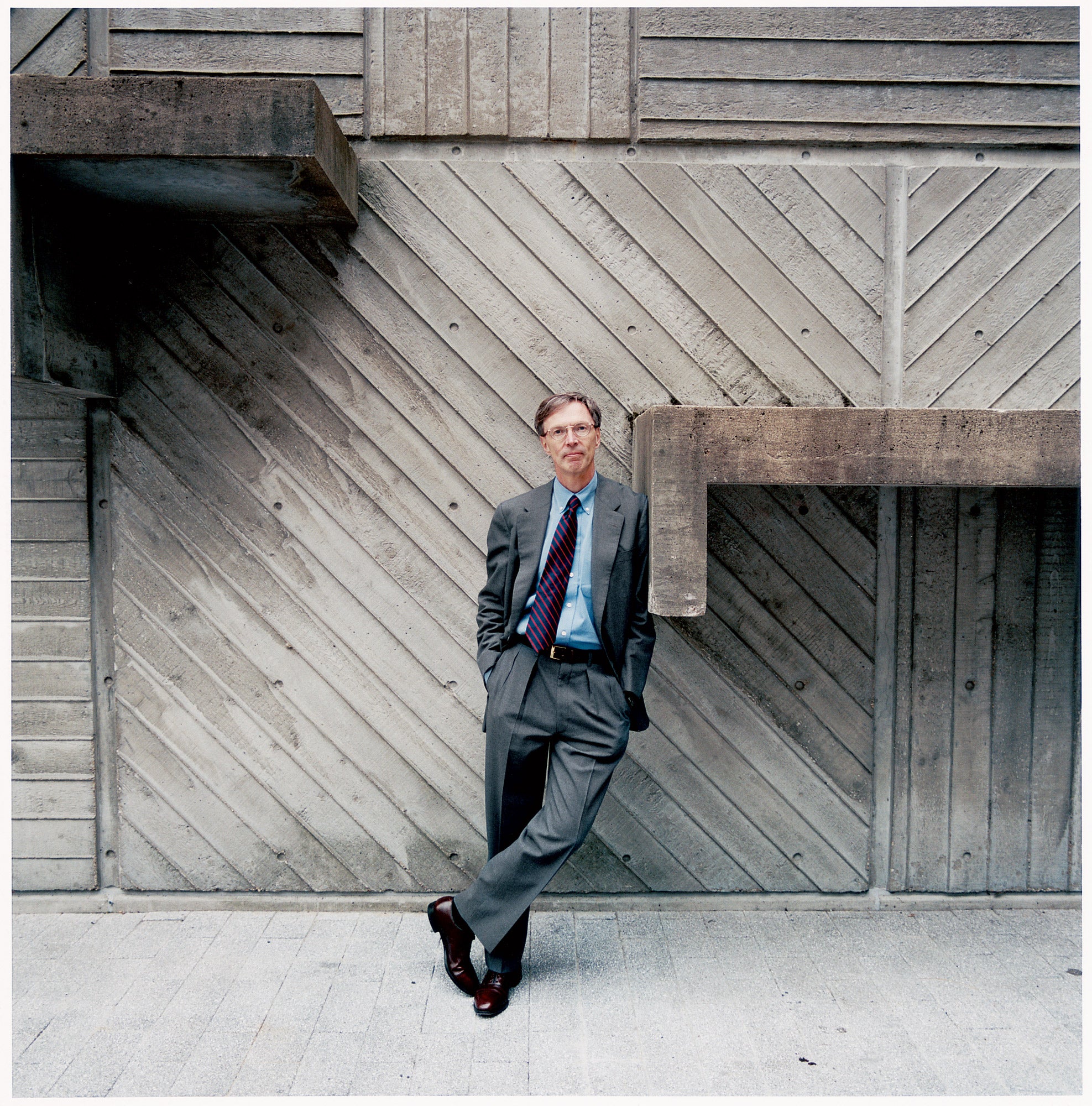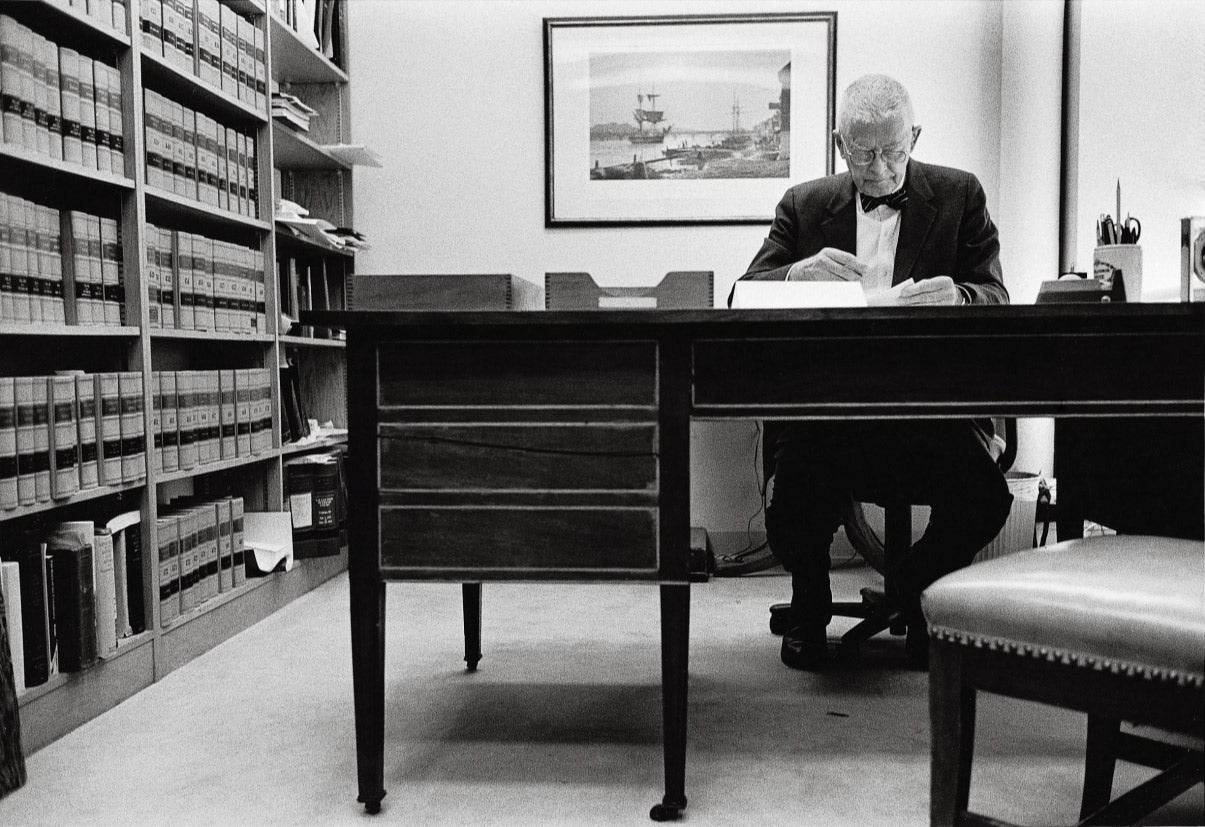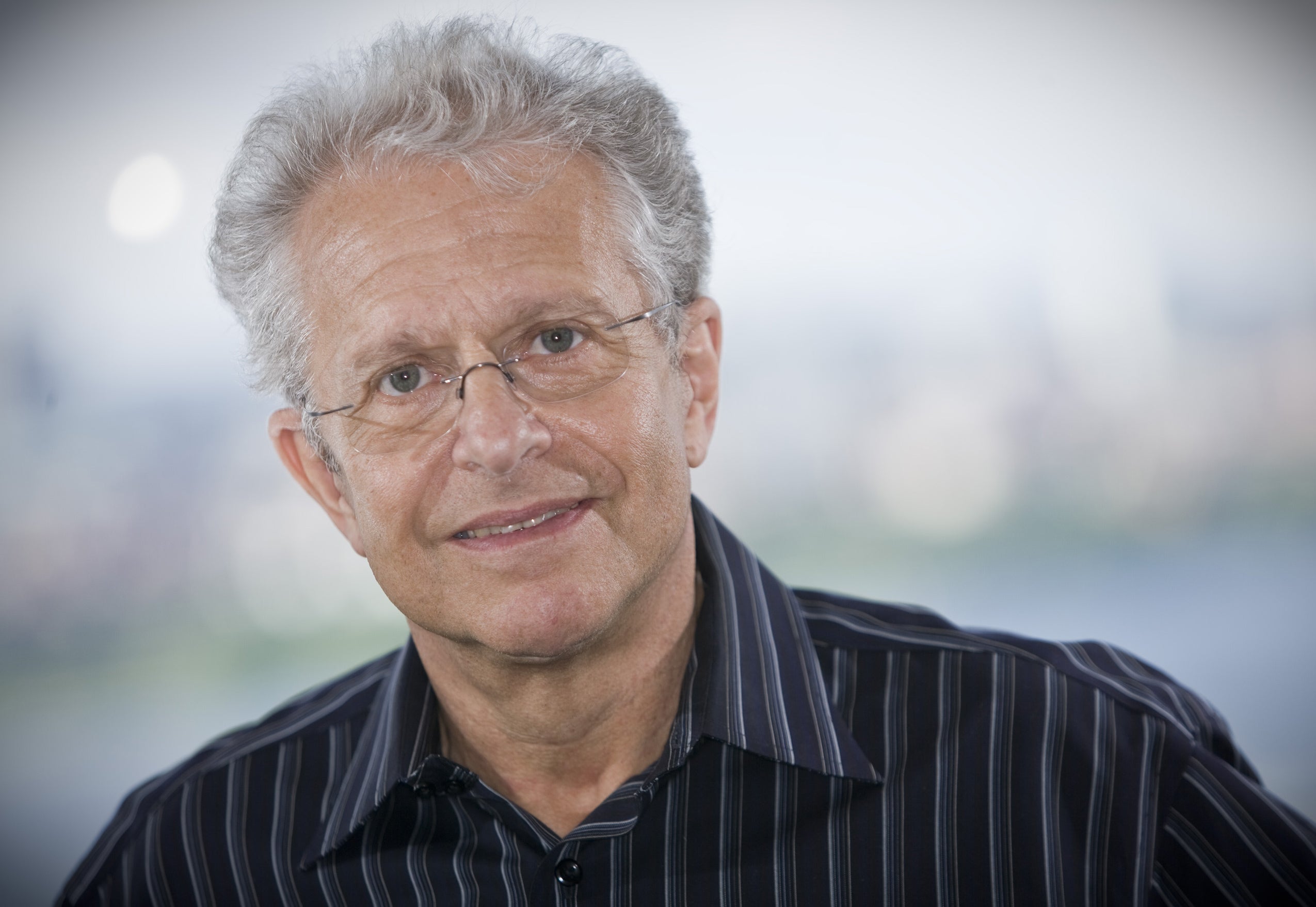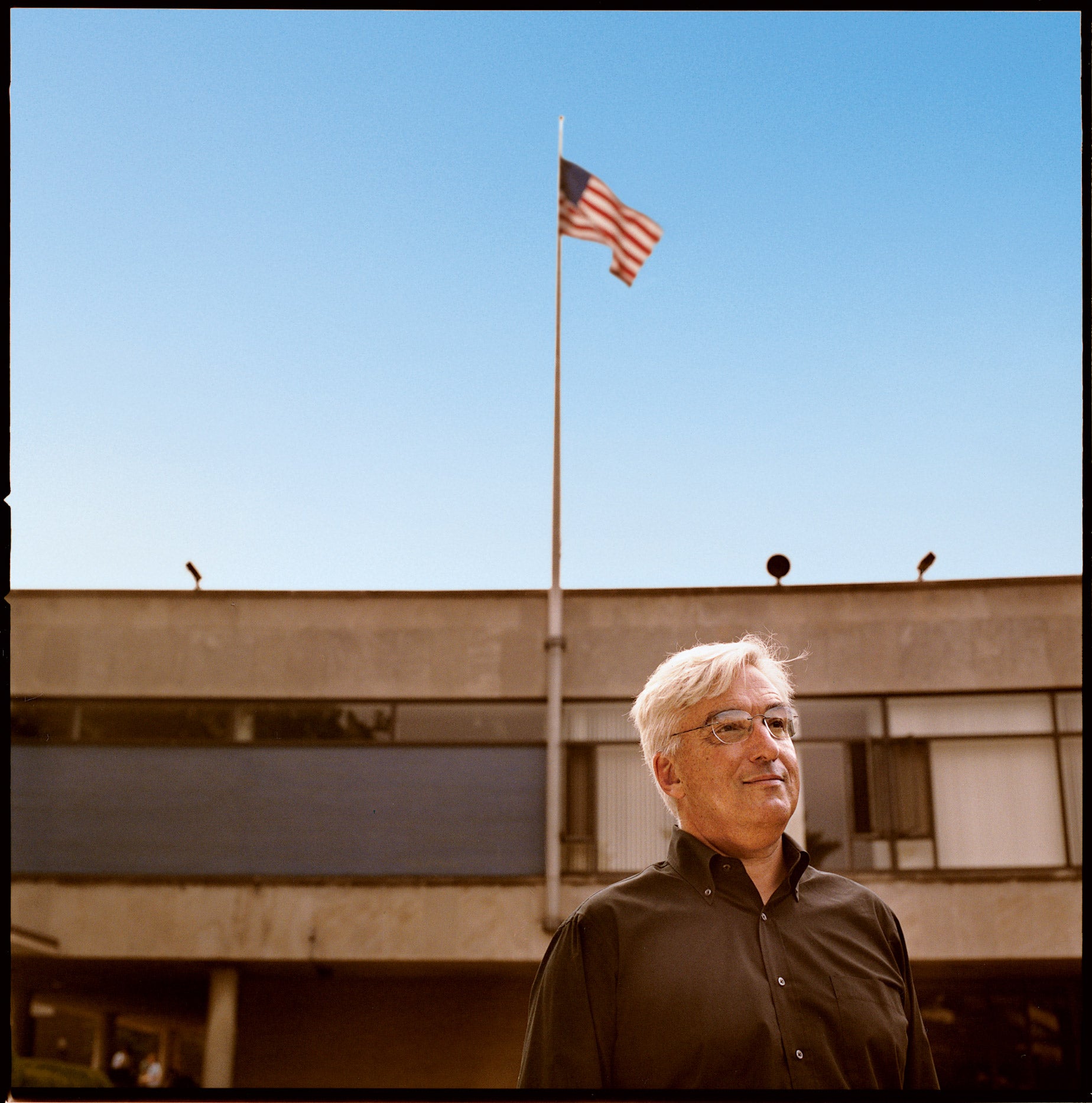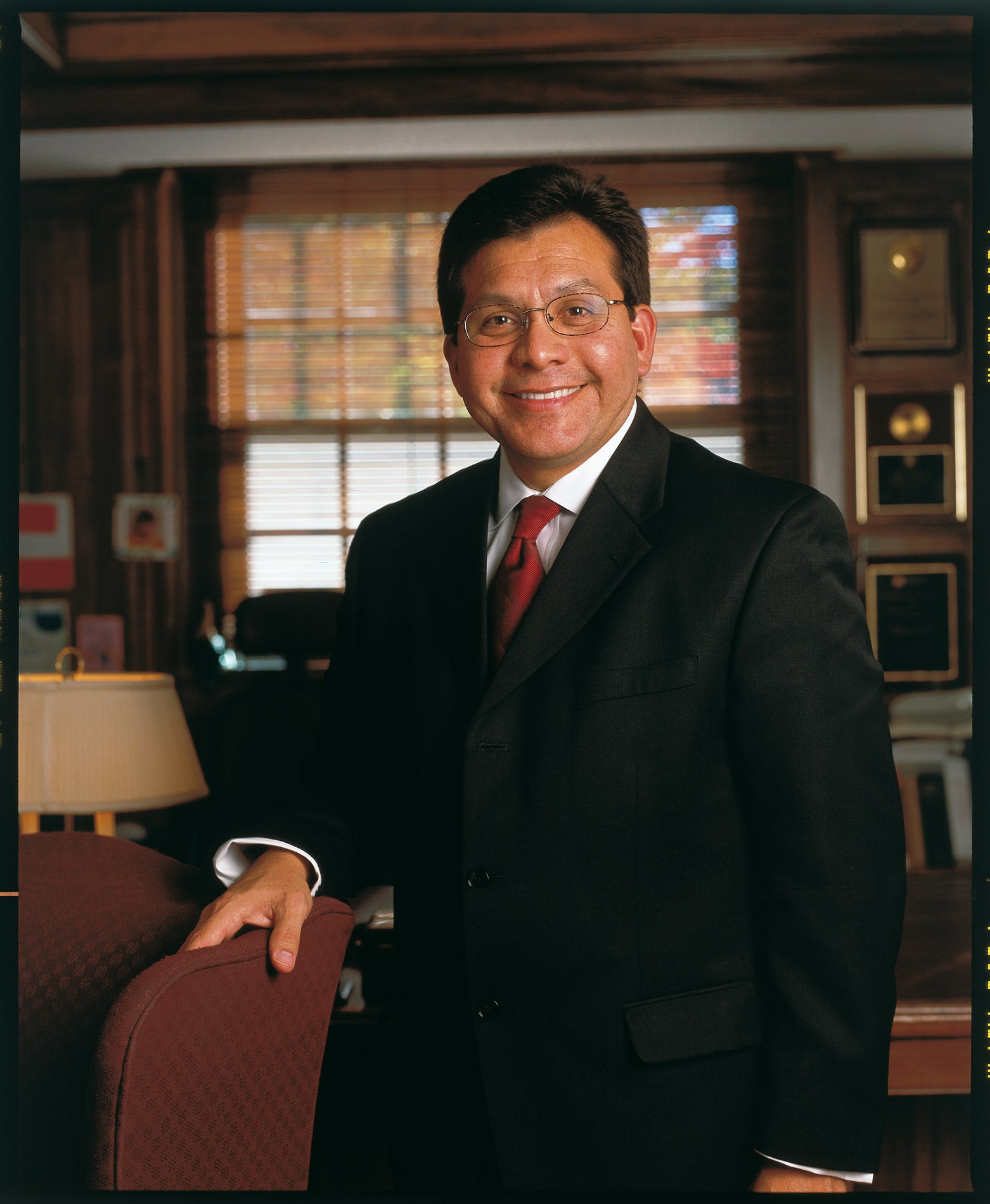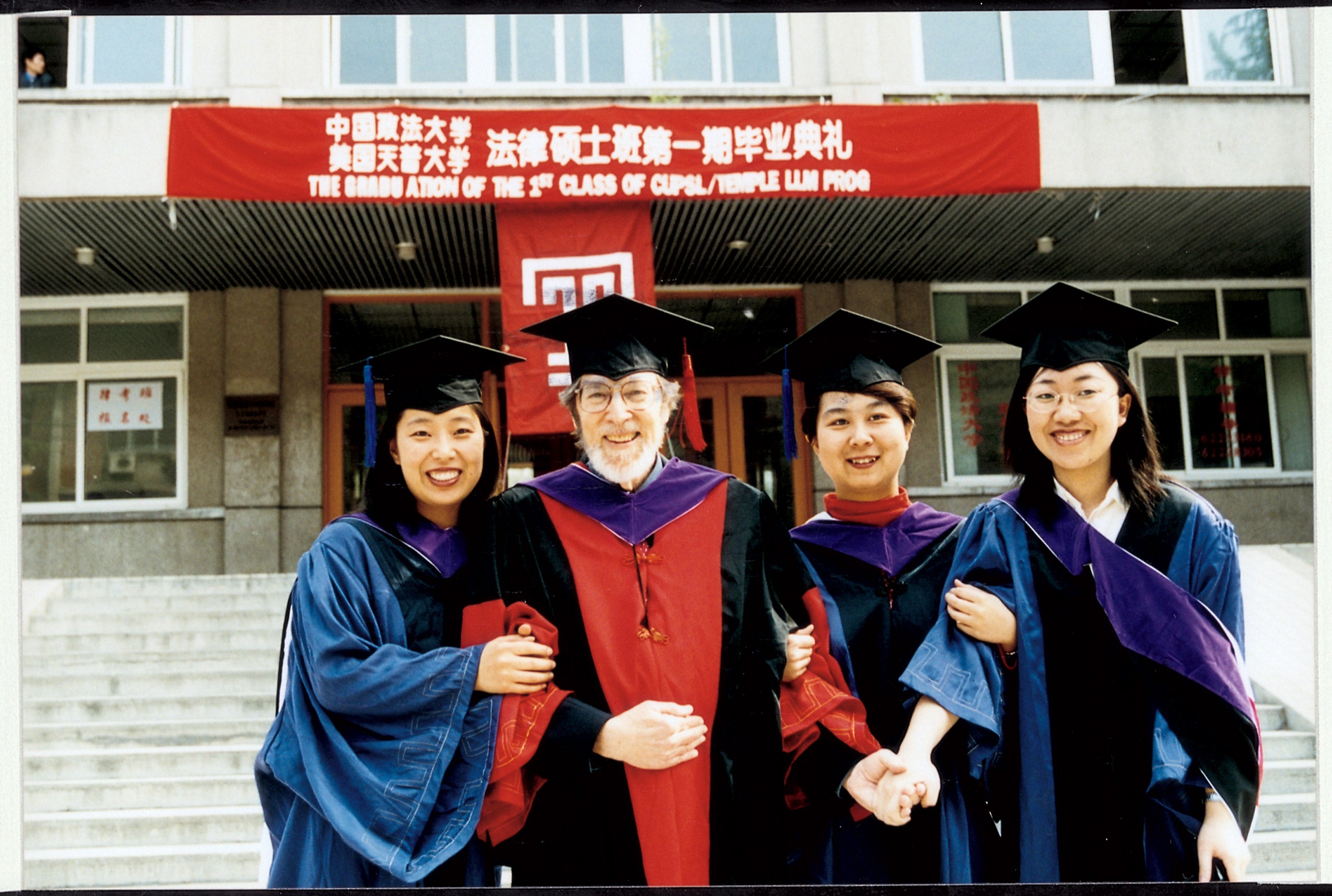Topics
Constitutional
-
HLS team wins in three Supreme Court decisions
April 30, 2007
Harvard Law School Professor Carol Steiker ’86, several students, and two HLS alumni celebrated a supreme victory on April 25 when the high court ruled that death sentences in three cases from Texas should be overturned. Steiker and several of her research assistants contributed to the defense of three individuals on death row, along with Jordan Steiker ’88 and Robert Owen ’89, co-directors of the University of Texas at Austin School of Law’s Capital Punishment Clinic.
-
An op-ed by Professor Charles Fried: The people, not courts, should rule on same-sex marriage
January 5, 2007
The following op-ed was published in the Boston Globe on January 5, 2007: Deval Patrick is off to a bad start. If the amendment to prohibit gay marriage ever reaches the people, I shall vote against it. I regret that the Supreme Judicial Court, in its closely divided 2003 decision in the Goodridge case, proclaimed that the state Constitution requires same-sex marriage.
-
McNeil v. Lu: Questions Presented
April 23, 2006
Shortly after midnight in the city of Amesville, petitioners McNeil and Perez–15-year-old boys–were playing video games at Playland, an all-night amusement park and arcade, when…
-
Friendly fire
April 23, 2006
With a little help from your friends: Amicus briefs are meant to offer judges some extra information. But is amicus practice getting out of hand?
-
Towards ‘active liberty’
April 23, 2006
U.S. Supreme Court Justice Stephen Breyer '64 talks with the Bulletin in chambers.
-
Professor Hanson on the Supreme Court’s ‘drifters’
January 9, 2006
When Justices William Rehnquist and Sandra Day O’Connor left the bench last year, conservatives were in an anxious mood: though pleased at the prospect of shifting the Supreme Court to the right, they were worried by the record of past Republican appointments. The refrain in conservative commentary, repeated with special intensity during the Harriet Miers affair, was: Not another Souter. Not another Kennedy. Not another O’Connor.
-
Professor Fried: The case for surveillance
January 1, 2006
Professor Charles Fried writes: I am convinced of the urgent necessity of such a surveillance program. I suppose but do not know -- the revelations have been understandably and deliberately vague -- that included in what is done is a constant computerized scan of all international electronic communications.
-
Professor Hanson on Supreme Court politics
December 12, 2005
When it comes to Supreme Court nominees, conservatives are in agreement: Situation matters. Pundits on the right shouted down Harriet E. Miers over concerns that her evangelical backbone would whither under Washington winds. Judge Samuel A. Alito Jr. stepped into her spot seeming of far more stalwart vertebrae, but as his backers have stressed recently, he is a creature of situation as well.
-
Professor Glendon examines the Court’s use of foreign law
September 16, 2005
Professor Mary Ann Glendon writes: At first glance, it is hard to see why these side-glances at what other countries do have provoked such alarm. True, the references have increased somewhat, but they remain rare, and no one suggests that the court has directly based any of its interpretations of the Constitution on foreign authority.
-
Op-ed by Professor Tribe: Gentleman of the Court
September 7, 2005
The following op-ed by Professor Laurence Tribe, Gentleman of the Court, originally appeared in The New York Times on September 6, 2005: In October 1971, the White House tapped Assistant Attorney General William H. Rehnquist to respond to my critique of someone at the top of its short list for one of the two vacancies created by the nearly simultaneous resignations of two justices.
-
Faculty Pro Bono, Four Takes
September 1, 2005
When Professor Elizabeth Bartholet ’65 spoke at a conference on international adoption in Guatemala City early this year, she addressed a room full of activists, lawyers and politicians. But at the heart of her speech, and her pro bono advocacy, are children–living in institutions or foster care around the world.
-
Not-So-Eminent Domain
April 1, 2005
Local governments have long had broad authority to accomplish urban planning through the power of eminent domain--taking land away from private owners for fair market value and converting it to uses that meet public needs.
-
Can Reporters Refuse to Testify?
April 1, 2005
After columnist Robert Novak published leaked information in July 2003 revealing that Valerie Plame, the wife of a prominent critic of the Bush administration, was a CIA operative, a special prosecutor launched an investigation to determine who was responsible for the leak.
-
Keeping It Simple
September 1, 2004
Children, according to Professor Charles Fried, are natural lawyers.
-
Fallon on the Supreme Court and Medical Marijuana
September 1, 2004
This winter, the U.S. Supreme Court will hear arguments in a tug-of-war between the states and the federal government over drug policy. We asked constitutional law expert Professor Richard H. Fallon to predict how the Court will rule.
-
Lessons in Courage
July 1, 2004
Professor Archibald Cox, 1912-2004, taught the nation what it means to be true to one's principles. Professor Emeritus Archibald Cox '37 died on May 29 at age 92. Tenured at Harvard Law School in 1946, he taught generations of students torts, administrative and constitutional law.
-
A Marriage Contrast
July 1, 2004
The Massachusetts Supreme Judicial Court decision in Goodridge v. Department of Public Health last fall has allowed gay marriage in the commonwealth--at least for now.
-
Stand for the Flag
April 1, 2004
Because of two 5-4 Supreme Court decisions, physical desecration of the American flag is legal. Professor Richard Parker ' 70 supports a constitutional amendment that would change that.
-
The Loyalist
April 24, 2003
With devotion to the president and the office, Alberto Gonzales '82 tackles the complications and controversies of the White House counsel's job.
-
The Year of the Copyright
April 24, 2003
In October, the Supreme Court heard a challenge to the constitutionality of a law extending copyright by 20 years. But the question posed by the case, says Assistant Professor Jonathan Zittrain '95, is whether copyright can last forever.
-
A Strong Constitution
April 1, 2002
At a time when America could use a goodwill ambassador, Burton Caine '52 may seem like an unlikely candidate. He has sued his country's government and spoken out against its actions.

